Related Research Articles
Hindi literature includes literature in the various Central Indo-Aryan languages, also known as Hindi, some of which have different writing systems. Earliest forms of Hindi literature are attested in poetry of Apabhraṃśa such as Awadhi and Marwari. Hindi literature is composed in three broad styles- prose, poetry, and prosimetrum. Inspired by Bengali literature, Bharatendu Harishchandra started the modern Hindi literary practices. In terms of historical development, it is broadly classified into five prominent forms (genres) based on the date of production. They are:

Kathak is one of the nine major forms of Indian classical dance. Its origin is attributed to the traveling bards in ancient northern India known as Kathakar ("storyteller"), who communicated stories from the Hindu epics through dance, songs and music. Its name derives from the Sanskrit word katha which means "story", and kathakar which means "the one who tells a story", or "to do with stories". 'Katha kahe so kathak kahave'- Kathak is the dance of story tellers. Stories narrated through the medium of the body, face, hands, feet in sync with the tabla and lehra.

Dhanpat Rai Srivastava, better known as Munshi Premchand based on his pen name Premchand, was an Indian writer famous for his modern Hindustani literature.
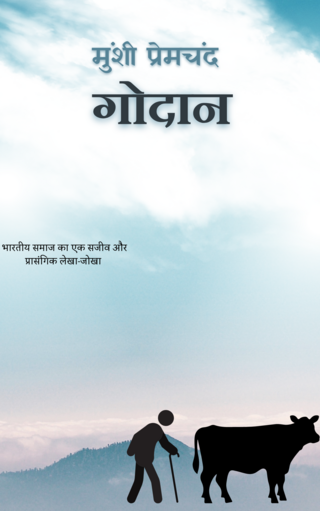
Godaan is a Hindi novel by Munshi Premchand. It was first published in 1936 and is considered one of the greatest Hindi novels of modern Indian literature. Themed around the socio-economic deprivation as well as the exploitation of the village poor, the novel was the last complete novel of Premchand. It follows the story of an old poor farmer, stuck in a debt trap, who wants to purchase a cow, but is unable to do so because of lack of finances. It has been translated into English in 1957 by Jai Ratan and Purushottama Lal as The Gift of a Cow. A 1968 translation by Gordon C. Roadarmel is now considered "a classic in itself".
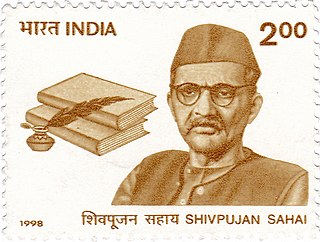
Acharya Shivpujan Sahay was a noted Hindi and Bhojpuri novelist, editor and prose writer. He contributed in pioneering modern trends in, as well as in fiction. His texts "Mata ka Anchal" also printed in CBSE Book. In the text Mata ka Anchal, he has shown a wonderful bond with mother. He also conferred him with Padma Bhushan award by the Government of India.

Nathuram Premi was an Indian writer, publisher, poet, editor, and linguist in the field of Jainism as well as Hindi literature. A budding poet, he wrote under the nom de plume of "Premi". Although belonging to the Digambara sect of Jainism, he adopted a non-sectarian attitude and published and translated many Digambara as well as Śvetāmbara works. Working as a clerk in a firm in Mumbai he rose to establish his own publishing house and bookstore Hindi Granth Ratnākar Kāryālay which published works of many of the biggest names in Indian literature, including Munshi Premchand, Hajariprasad Dvivedi, Jainendrakumar, Yashpal, Swami Satyabhakta, Sharatchandra Chatterjee and Rabindranath Tagore. The bookshop and publishing house now called Hindi Granth Karyalay is now being managed by his grandson and great-grandson 100 years after its establishment.

Shatranj Ke Khilari, also subtitled and later internationally released with the translated title The Chess Players, is a 1977 Indian film written and directed by Satyajit Ray, based on Munshi Premchand's short story of the same name.

Thaïs is a novel by French writer Anatole France, published in 1890. It is based on events in the life of Saint Thaïs of Egypt, a legendary convert to Christianity who is said to have lived in the 4th century. It was the inspiration for the 1894 opera of the same name by Jules Massenet.
Bazaar-e-Husn or Seva Sadan is a Hindustani novel by Munshi Premchand.

Gaban (transl. Embezzlement) is 1966 Hindi film directed by Hrishikesh Mukherjee, based on Munshi Premchand's classic novel by the same name. It had Sunil Dutt and Sadhna playing the lead role. The film has music by Shankar Jaikishan, and lyrics were by Shailendra and Hasrat Jaipuri.

Mehr Lal Soni, better known as Zia Fatehabadi, was an Indian Urdu ghazal and nazm writer. He was a disciple (shaagird) of Syed Aashiq Hussain Siddiqui Seemab Akbarabadi (1882–1951), who was a disciple of Nawab Mirza Khan Daagh Dehlvi (1831–1905). He used the takhallus of Zia meaning "Light" on the suggestion of his teacher, Ghulaam Qadir Farkh Amritsari.
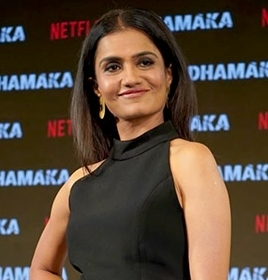
Amruta Subhash is an Indian actress who works in Marathi and Hindi films, television, and theatre. She is a graduate of the National School of Drama, New Delhi. She has received several awards, including a National Film Award, two Filmfare Awards, and a Filmfare OTT Award.
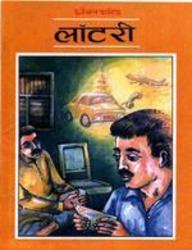
"Lottery" is a Hindustani short story. It was written by Indian author Premchand. The story is told in narrative form from the perspective of an unnamed school teacher. The story has been adapted into play format, with theatrical performances presented by Lalit Parimoo's Natsamaj Theatre Group, as well as Mujeeb Khan's Ideal Drama and Entertainment Academy.
Khwaja Muhammad Azam Kaul Didamari was a Sufi Kashmiri writer in the Persian language. Khwaja means "master", Didamari means from the Didamar quarter of Srinagar.
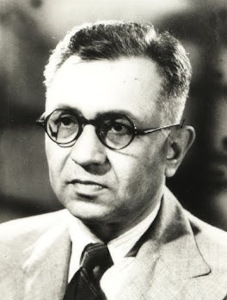
Syed Imtiaz Ali Taj was a Pakistani dramatist who wrote in the Urdu language. He is best known for his 1922 play Anarkali, based on the life of Anarkali, that was staged hundreds of times and was adapted for feature films in India and Pakistan, including the Indian film Mughal-e-Azam (1960).

Nirmala is a Hindi novel written by Indian writer Munshi Premchand. The melodramatic novel is centered on Nirmala, a young girl who was forced to marry a widower of her father's age. The plot unfolds to reveal her husband's suspicion of a relationship between her and his eldest son, a suspicion that leads to the son's death.
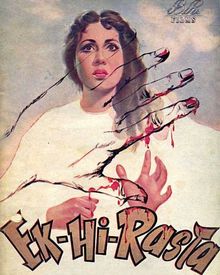
Ek Hi Raasta is a 1956 family-drama Indian Hindi film directed and produced by B. R. Chopra. It starred Sunil Dutt, Meena Kumari, Ashok Kumar, Daisy Irani, Jeevan and Shrinath in main roles. The music for the film was scored by Hemanta Mukherjee. Having directed a few films earlier, Chopra formed his own production house B.R. Films in 1955 and Ek Hi Raasta was the first film produced under this banner. The film was remade in Telugu as Kumkuma Rekha (1960) and in Tamil as Pudhiya Pathai (1960).
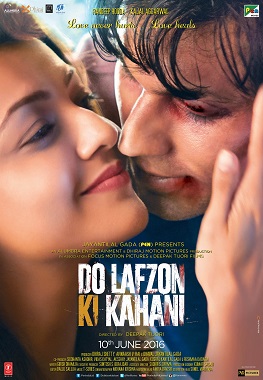
Do Lafzon Ki Kahani is a 2016 Indian Hindi-language romantic action drama film directed by Deepak Tijori from a screenplay by Girish Dhamija and produced by Avinaash V. Rai and Dhaval Jayantilal Gada under his banner Pen India Limited. The film stars Randeep Hooda and Kajal Aggarwal in the lead roles. It is a remake of the 2011 Korean movie Always, which was previously adapted in 2015 in Kannada as Boxer.

Gaban is a Hindi novel by Munshi Premchand, published by Saraswati Press in 1931. Through this novel, he tries to show "the falling moral values among lower middle class Indian youth in the era of British India", and to what depths a person can descend to, to become a pseudo-elite, and maintain a false image as a rich person. Gaban is a cult classic satire of Premchand.

Puru Dadheech is a Kathak dancer. He is a choreographer and educator of Indian classical dance, and is known for his pioneering work in the field of Kathak. At the oldest Kathak department which was formed in 1956 at Indira Kala Sangeet Vishwavidyalaya Public University located in Khairagarh, Puru Dadheech instated the first Kathak syllabus in 1961. He is the holder of the first Doctorate in Kathak Classical Dance and emphasizes the relevance of Shastras in the Kathak repertoire. He was awarded Padma Shri, the 4th highest civilian award of India He is currently serving as the Director of the world's first dedicated Kathak research Centre at the Sri Sri University, Cuttack called Sri Sri Centre for Advanced Research in Kathak.
References
- ↑ Sigi, Rekha (2006). Munshi Premchand. A.H.W. Sameer Series. Diamond. p. [ page needed ]. ISBN 978-81-288-1214-9.
- ↑ Faisal, Mirza (11 October 2007). "Munshi Premchand and Idgah!". Indian Muslims. Archived from the original on 14 March 2012. Retrieved 28 April 2012.
- ↑ Premchand, Munshi (2009). ईदगाह [Idgah] (in Hindi). Prabhat Prakashan. ISBN 978-81-85830-25-4.
- ↑ Engineer, Asghar Ali (2007). Communalism in Secular India: A Minority Perspective. Hope India Publication. p. 57. ISBN 978-81-7871-133-1.
- ↑ Fanthome, Francis; Fanthome, Dorothy. The Joy of Living: A Series for Value Education. Frank Brothers. p. 45. ISBN 978-81-7170-617-4 . Retrieved 5 June 2012.
- ↑ Joshi, Sonam (18 October 2008). "Teens from Srinagar orphanage take the stage in city to ask: Are children happy in the Valley?". The Indian Express . Archived from the original on 22 January 2013. Retrieved 5 June 2012.
- ↑ Parkar, Shaheen (4 October 2008). "Toy soldiers come alive". Mid-Day . Archived from the original on 5 October 2008. Retrieved 5 June 2012.
- ↑ "Lamhi Mahotsava from July 29–31". The Times of India . Times News Network. 16 July 2011. Archived from the original on 3 January 2013. Retrieved 5 June 2012.
- ↑ Tehreer...Munshi Premchand Ki : Eidgaah - EP#19. Doordarshan National. 5 September 2013 – via YouTube.
- ↑ Brownlee, Shona (2018). Teachers' Resource: 5 Rupees (Idgah) (PDF). Dundee Contemporary Arts . Retrieved 28 August 2021.